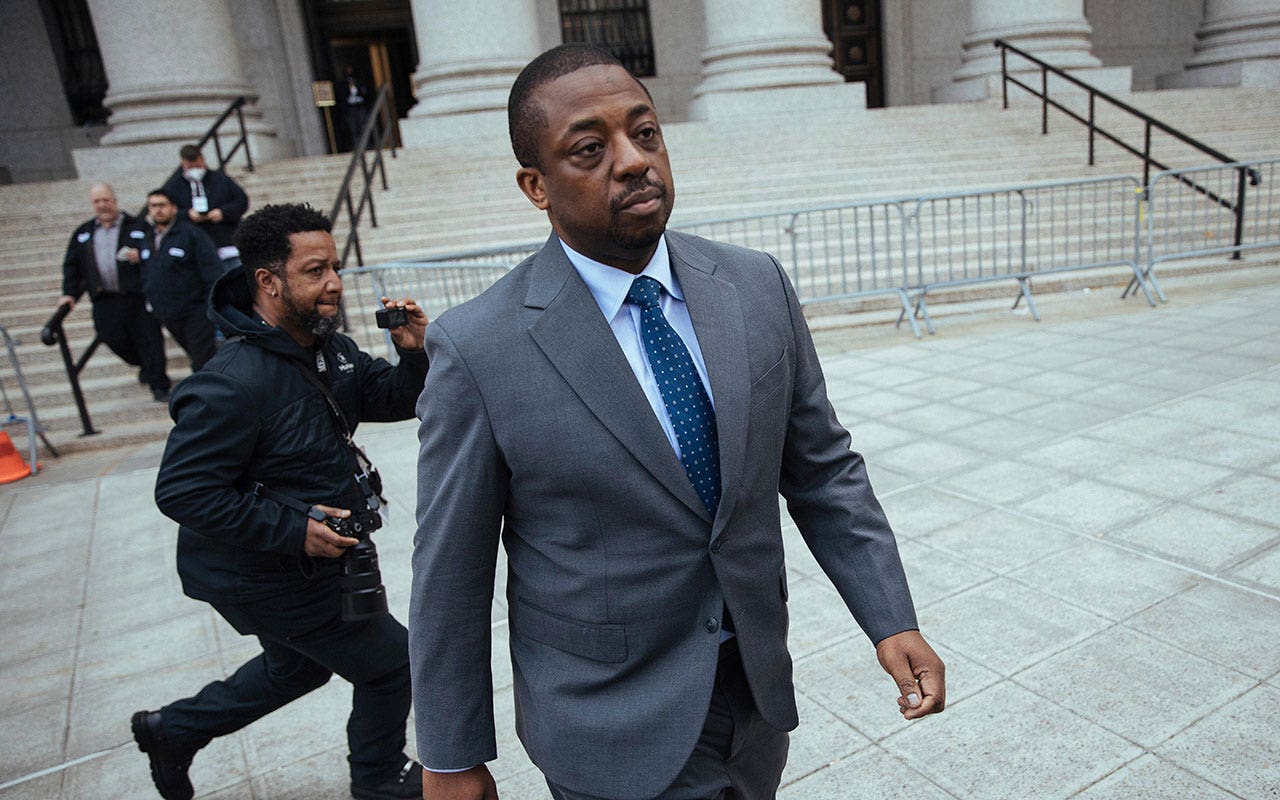It’s not often that a poll result causes me to do a double take. This month, however, a Pew Research Center survey grabbed my attention. As part of a comprehensive poll on the importance of religion in public life, Pew compared Americans’ knowledge of and support for Christian nationalism between September 2022 and February 2024 and found no meaningful change at all. The exact same percentage of Americans said they’d heard or read about Christian nationalism — 45 percent in 2022 and 45 percent in 2024. The exact same percentage of Americans said they’d never heard or read about Christian nationalism — 54 percent in both years.
The beliefs and attitudes of those who had heard about Christian nationalism were remarkably static. After months of debates in the media, the percentage of Americans who have a favorable view of Christian nationalism was unchanged. The percentage of those who have an unfavorable view increased a single percentage point — from 24 percent to 25 percent. In fact, the largest change in the poll was the whopping 2 percent decrease in the number of people who said they had no opinion, from 8 percent to 6 percent.
My first response was surprise. How could this be? The Christian nationalism debate has flooded online spaces since Jan. 6, 2021, if not earlier. There’s a fight over its definition, a fight over its reach and a furious fight (especially within Christian spaces) over its desirability. Is it actually possible that all of those articles, podcasts and speeches have made no difference at all?
The more I thought about it, though, the more I realized my surprise was misplaced. I had another take that trumped my first. When you take a step back and think through some of the larger issues in American politics, the poll result makes perfect sense. Note that I said that Americans have been having a furious online conversation about Christian nationalism. Yet an online conversation isn’t the same thing as a national conversation.
I’m reminded of one of the most illuminating studies I’ve ever read. It came from the Hidden Tribes of America project, which was put together by a group called More in Common. It surveyed 8,000 Americans to try to explore their attitudes and conflicts beyond the red-blue divide, and one of its central conclusions is critical to understanding the modern moment: Only a minority of Americans are truly active in political debates, and they’re exhausting and alienating the rest of the country.
In 2019 my Times colleagues Nate Cohn and Kevin Quealy used this data to expose the vast difference between online and off-line Democrats. One-third of Democrats post political content on social media; two-thirds do not. And the differences between the two groups were significant. Online Democrats were far more liberal, disproportionately white and far more likely to engage in activism, such as attending a protest or donating to a candidate.
Don’t think for a moment that this dichotomy exists only on the left. More in Common found that both wings of American life — the highly polarized left and the highly polarized right — shared characteristics. For example, the most polarized conservatives are also disproportionately white and are almost twice as likely to list politics as a hobby.
Together, these polarized wings are the most united, most tribal and least persuadable Americans. Or, as More in Common put it, members of the wings are “the most certain of their positions.” The rest of Americans — the other two-thirds — constitute an “exhausted majority.” They’re deeply discontented with American politics, and many are also largely disengaged.
So, then, the Pew poll on Christian nationalism makes sense. Yes, there’s been a furious argument, but it’s been conducted both within and between the polarized wings. Few people in those groups ever change their minds. Everyone else doesn’t even know the debate is happening.
This kind of exhaustion magnifies our political inertia. If the wings aren’t changing their minds and the majority is checked out, then stasis can set in. The engaged members of the wings are negatively polarized. There is no way they’re switching teams. The exhausted majority is discontent with the status quo, but it’s largely passive. It doesn’t exert nearly enough energy to repair our political culture, even though it wants change.
To better understand the dynamic, imagine our political controversies as a court case where the lawyers argue with each other but most of the jury doesn’t even arrive until the end of the case. Yes, they cast votes, but their decisions are rooted in their existing biases, not the evidence. The lawyers are livid at the absent jurors. The jurors are repulsed by the lawyers’ hostility, and nothing changes.
This large-scale disengagement can cause us to misdiagnose ignorance as indifference. For example, a YouGov survey conducted this year found that most Republicans don’t know or aren’t sure whether Donald Trump was found liable for sexually assaulting and defaming E. Jean Carroll. They don’t know or aren’t sure whether Trump has been sued for fraud or charged with mishandling classified information or attempting to unlawfully overturn the results of the 2020 election.
Experience teaches us that most disengaged Republicans would quite likely stay Republican even if they knew the truth about Trump. It’s also true, however, that absent new information, they have no good reason to change their votes. Yet when they disengage, they remove themselves from the information that could change their minds.
The decision to unplug from the news is often quite rational and perhaps even prudent — compounding the problem. Disengagement is a reasonable response to the unreasonable vitriol that dominates our political conversations. Weighing in on politics online or even watching it passively is like voluntarily choosing to receive an electric shock.
One friend told me, “I got sick of the constant rage.” So he deleted his social media accounts, turned his cable television from Fox News to ESPN and never looked back. “My blood pressure is down,” he said, “and I’m a better husband and father.” Good for him, I thought, but bad for us. Another decent man has disengaged. Another member of the jury has left the courtroom.






